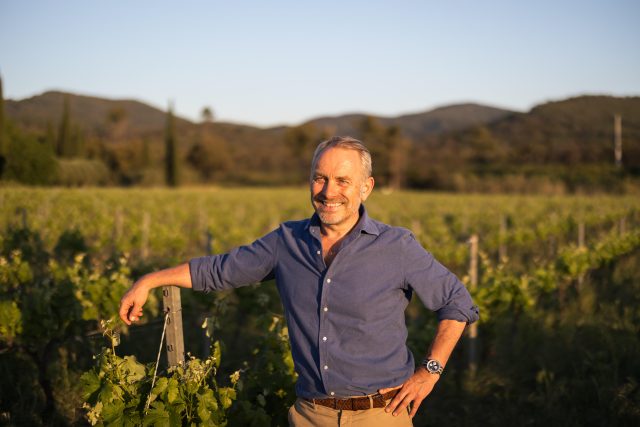Domaine Mirabeau secures regenerative certification
Domaine Mirabeau in Provence has become France’s first Regenerative Organic Certified (ROC) vineyard. db finds out more from estate co-owner Stephen Cronk.

Cronk, who acquired the estate with his wife Jeany in 2019, told the drinks business: “In many wine regions there’s still a monoculture mindset that champions one plant in the vineyard – the vine – and views any other plants as competitors that should be eliminated by ploughing or spraying. Wine producers who are more sensitive to their local ecosystems realise that a monoculture is destructive and that there’s another way of working much more in concert with nature rather than against it.”
Cronk shared that Mirabeau began its shift to regenerative when he took over four years ago and realised that he had “inherited depleted soils in a geographical location that was hot, dry and with poor soils to begin with”.
“Although organic is not necessarily a prerequisite to regenerative farming, it was a starting point for us and we were certified organic by Ecocert in 2022,” Cronk explained.
14 hectares of the estate are planted with AOP Côtes de Provence vines.
“In parallel to organic conversion, we started to farm according to regenerative practices by transitioning towards permanent cover-cropping and no-till farming. We have increasingly used biomass and nitrogen-fixing cover crops on all rows, while keeping soil disturbance to the absolute minimum.”
“At the same time,” he continued, “we have regularly applied organic compost, compost teas and probiotic treatment to kickstart microbial and fungal activity in our soil. We have planted other plants, trees and hedges around the domaine where possible, to break up the monoculture that is so common in vineyards. We don’t irrigate and have relied on the vineyard self regulating, even through some very hot, dry years in Provence.”
Partner Content
However, while organic viticulture may seem to go hand-in-hand with regenerative, Cronk said that it can make things difficult for producers in pursuit of ROC: “The single biggest challenge is the prerequisite of already being certified organic and this is a subject of much debate in the regenerative world right now. The California Department of Food and Agriculture is in the process of legally defining the word ‘regenerative’. Organic will be a barrier to entry for many vineyard regions and therefore there are other objective factors that need to be taken into consideration, such as building Soil Organic Matter (SOM) and Soil Organic Carbon (SOC). It will be interesting to see where this debate leads us and which certifications will be recognised by the major retailers.”
A first for France
Cronk suggested that the reason why Mirabeau is the first French wine estate to gain ROC status is because such certifications are “a relatively new concept”. Indeed, the organisation behind certification, the non-profit Regenerative Organic Alliance, was only founded in 2017.
“Though we hear of a lot of positive soil initiatives locally in Provence, it’s not yet broadly accepted that soil disturbance has a negative effect on bioactivity and carbon levels,” he shared. “Frequent ploughing is still very much part of the viticultural year here, which is why we want to actively help change the status quo by working with our partner growers.”
He also revealed that earlier this year a group of winegrowers were hosted at Domaine Mirabeau for a seminar on regenerative viticulture.
Does regenerative viticulture result in better wines?
“Regenerative wines are certainly better in the true sense of the word, because they are made in a way that is better for the future of our children and our planet,” argued Cronk. “They’re even better for the future of wine production itself, which is at threat if we continue down a path of intensive farming, monoculture and chemical inputs.”
He went on to suggest that regeneratively-farmed soils can lead to “more complex and nuanced flavours” in the fruit, and therefore in the resultant wine: “We prize the concept of terroir in the wine world, and yet so often we are working with dead, depleted soils that have entirely lost their sense of place. By bringing our terroir back to life, we are producing more authentic wines.”
“More research is needed to pinpoint the science behind the almost magical effect regenerative farming seems to have on wine quality,” Cronk conceded, “but it’s interesting that most producers who go regenerative never look back. Most are convinced simply by their own comparative tastings, the sustained quality they’ve achieved since making the transition to regenerative, and the joy of working in a vineyard that is alive.”
Related news
Pauillac 2024 en primeur: tasting notes
The 'family spirit' behind Champagne Gardet's 130th anniversary
Will white wine be central to Burgundy's future success in Asia?




